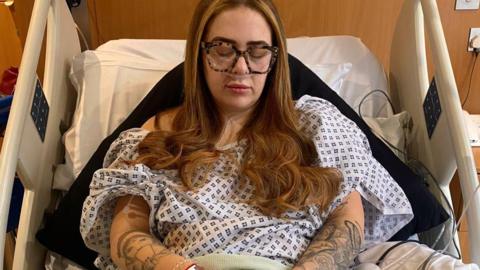Owen, a Labour MP who chairs the Equalities Committee, said: "Women are finding their symptoms dismissed, are waiting years for life changing treatment and in too many cases are being put through trauma-inducing procedures.
"All the while, their conditions worsen and become more complicated to treat."
Up to one in three women live with heavy menstrual bleeding while one in 10 have a condition such as endometriosis or adenomyosis, she said.
According to an analysis by the Office for National Statistics, 2% of women aged 15-49 are estimated to have an endometriosis diagnosis, although it said many more will be affected and won't have a diagnosis.
"It cannot be right that despite the prevalence of these conditions, that such a lack of understanding and awareness persists," Owen said.
She also called for women with a suspected or diagnosed reproductive health condition to be offered specialist mental health support.
Dr Henrietta Hughes, patient safety commissioner for England, welcomed the report, saying the NHS needed to take "a long hard look" at the way patients are involved in their care.
"We need to treat patients as partners, make sure that they are well-informed, listened to and that they have a good experience of care," Dr Hughes said.
A Department of Health and Social Care spokesperson in England said it was "totally unacceptable that women with reproductive conditions are not getting the care they need and that their voices are not being heard".
"That is why we will overhaul women's healthcare, placing women's equality at the heart of our agenda, and ensure women's health is never again neglected."
They added that an extra £26bn was being invested into the NHS and, with that, the government would get the service "back on its feet so it delivers for all patients".
Health ministers in Scotland, Wales and Northern Ireland say plans are in place to tackle long waits for treatment.
A spokesperson for the Welsh government said women's health had been made "a key priority".

